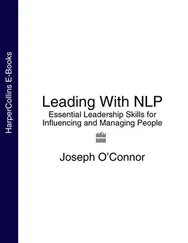John Gray - Children Are from Heaven - Positive Parenting Skills for Raising Cooperative, Confident, and Compassionate Children
Здесь есть возможность читать онлайн «John Gray - Children Are from Heaven - Positive Parenting Skills for Raising Cooperative, Confident, and Compassionate Children» весь текст электронной книги совершенно бесплатно (целиком полную версию без сокращений). В некоторых случаях можно слушать аудио, скачать через торрент в формате fb2 и присутствует краткое содержание. Год выпуска: 1999, ISBN: 1999, Издательство: HarperCollins e-books, Жанр: psy_childs, sci_pedagogy, Психология, на английском языке. Описание произведения, (предисловие) а так же отзывы посетителей доступны на портале библиотеки ЛибКат.
- Название:Children Are from Heaven: Positive Parenting Skills for Raising Cooperative, Confident, and Compassionate Children
- Автор:
- Издательство:HarperCollins e-books
- Жанр:
- Год:1999
- ISBN:978-0-06-133886-1
- Рейтинг книги:4 / 5. Голосов: 1
-
Избранное:Добавить в избранное
- Отзывы:
-
Ваша оценка:
- 80
- 1
- 2
- 3
- 4
- 5
Children Are from Heaven: Positive Parenting Skills for Raising Cooperative, Confident, and Compassionate Children: краткое содержание, описание и аннотация
Предлагаем к чтению аннотацию, описание, краткое содержание или предисловие (зависит от того, что написал сам автор книги «Children Are from Heaven: Positive Parenting Skills for Raising Cooperative, Confident, and Compassionate Children»). Если вы не нашли необходимую информацию о книге — напишите в комментариях, мы постараемся отыскать её.
Children Are from Heaven: Positive Parenting Skills for Raising Cooperative, Confident, and Compassionate Children — читать онлайн бесплатно полную книгу (весь текст) целиком
Ниже представлен текст книги, разбитый по страницам. Система сохранения места последней прочитанной страницы, позволяет с удобством читать онлайн бесплатно книгу «Children Are from Heaven: Positive Parenting Skills for Raising Cooperative, Confident, and Compassionate Children», без необходимости каждый раз заново искать на чём Вы остановились. Поставьте закладку, и сможете в любой момент перейти на страницу, на которой закончили чтение.
Интервал:
Закладка:
•On Sunday morning we are all going to sleep late and Mommy is going to make her delicious waffles.
•When Daddy is late making a pickup, he always makes it up by taking us to have a smoothie at the grocery store.
•When Daddy is out of town, he always calls to help with homework or say good night.
•Mommy always reads a story before bed.
•Mommy or Daddy always sings a song before bed.
•When a child is sick with a tummy ache, Mommy always prepares the warming pad and puts on a little castor oil.
•When Daddy is happy, he always sings his favorite song.
•Every Thursday at eight, we all get together and watch a very funny family show.
•Every night before bed, the child and parent talk and review their day.
•In spring, the whole family goes to pick flowers before dinner every night.
•Everyone takes the dog on a walk before dinner.
•Every summer we go on a special vacation that we really love, to the same place and the same hotel. (Certainly you could take other trips as well. But by repeating the same vacation, it becomes a special ritual.)
•On Sundays we take a family outing, go for a walk, or have a picnic.
•In summer on Sundays, we go to the beach.
•Every July we go to the county fair.
•Once a month we get to spend the day one-on-one with Mommy or Daddy.
•We say a prayer every night before bed and Mommy or Daddy sings a lullaby.
These fun and loving rituals create special memories and expectations that provide enormous security during childhood and the rest of life. There are other rituals that are less fun or special, but provide a strong sense of security and, most important, rhythm. Everything in nature has a rhythm.
Spring follows winter; summer follows spring.
Everything in life has its season. There is a time to be active and a time to rest; a time to eat and a time to play; a time to start and a time to clean up. The tides of the ocean come in and then go out. The sun rises and then it sets. Even in our bodies, we breathe in and then we breathe out. We awaken and then we sleep.
All repetitive behaviors, routines, and rituals provide a sense of rhythm to life. We are comforted by knowing what is coming next. We are familiar with what is to be. All children need rhythm and ritual, but receptive children depend on it the most if they are to come out of their cocoon and express their inner gifts and talents.
PRACTICAL RITUALS
These are more examples of important rituals to provide rhythm to a child’s life. Of course, not all of these would be possible or appropriate in every home. They are listed to stimulate ideas.
Get up at the same time every morning before school.
Have your own special spot or chair where you eat.
Go to school at the same time every morning.
Have the same person pick the child up every day after school.
Keep the same schedule to pick up the child.
Go to the park every Tuesday and Thursday.
Wash the car on Saturday.
Come to dinner at the same time; have a special way you call your children to dinner every night — bell or intercom with a simple message, “Dinner is ready. It’s time to come to dinner.”
Pick out tomorrow’s clothes the night before. (This one suggestion helps so much when a child resists getting dressed in the morning.)
Create a little routine before bed to wash face, brush teeth, and put on nightclothes, and start it at the same time every night. (This kind of rhythm is essential. All children need sleep, and a regular routine of getting ready for bed, at a certain time, makes them sleep much better, which in turn makes everything better.)
When receptive children get the rhythm they need, they develop great strength and organizing abilities. They can create order and maintain it. They are peaceful and practical and can overcome great obstacles to achieve their goals.
They are very talented at comforting and consoling with loving support. They move slowly, but are very grounded and solid.
GIVING OUR CHILDREN WHAT THEY NEED
Right now, you may be thinking, it is fortunate that parents today are deciding to have fewer children. If this new view of nurturing your children’s needs seems like a lot more than you can provide, it is not. It may seem overwhelming because it is new. As you become more familiar with these ideas and begin putting them into practice, parenting will become easier.
These different methods of nurturing do lessen resistance, but they take time and preparation, and sometimes we have neither. The next skills we will explore work even when you don’t have a lot of time. In the next chapter, you will learn how listening and expressing your wants can minimize resistance and successfully motivate your children to cooperate.
5
New Skills for Improving
Communication
The most important skills for minimizing resistance and creating cooperation are listening and understanding. When children resist cooperating, some part of them is wanting or needing something else. This unmet need, want, or wish must be identified and addressed. Identifying a need or want will often minimize children’s resistance. In this case, the act of understanding the source of the child’s resistance is enough to make it go away. By learning new skills for improving communication, you can immediately lessen children’s resistance and strengthen their willingness to cooperate.
Understanding your child’s resistance
is enough to make it go away.
The prime directive — or strongest desire, wish, and need — of children is the will to cooperate, please, and follow their parents. Children are born needing to follow their parents’ lead; their greatest wish is to make their parents happy; and their strongest desire is to cooperate. Yet, this primal directive must be awakened and nurtured just like any other gift or ability. Rather than focusing on ways to manipulate children with fear and guilt, positive parenting focuses on ways to awaken children’s willingness to cooperate. Using fear and guilt may effectively control children in the short run, but in the long run will weaken their willingness to cooperate.
WHY CHILDREN RESIST
When children resist a parent, it is often because they are wanting something else and they assume that if you just understood, you would want to support their want, wish, or need. Think about this for a moment. Most of the time as parents you are thinking, “What does my child want, wish, or need?” And then you take action to support your child.
When children feel loved and supported, they will naturally assume you will change your request if you hear what they need, wish, or want. They assume you will adjust your request if you just understand the importance of their immediate wants and needs. Sometimes their resistance is just an attempt to communicate to you that there is something else they would prefer.
The power of understanding your children’s resistance is that it immediately minimizes resistance. When children get the message that you understand what they want and how important it is to them, then their resistance level changes. It is not enough to just understand our children; we need successfully to communicate to them that we do understand.
When children resist, the reason is that they mistakenly believe the parent doesn’t understand what they wish, want, or need.
Читать дальшеИнтервал:
Закладка:
Похожие книги на «Children Are from Heaven: Positive Parenting Skills for Raising Cooperative, Confident, and Compassionate Children»
Представляем Вашему вниманию похожие книги на «Children Are from Heaven: Positive Parenting Skills for Raising Cooperative, Confident, and Compassionate Children» списком для выбора. Мы отобрали схожую по названию и смыслу литературу в надежде предоставить читателям больше вариантов отыскать новые, интересные, ещё непрочитанные произведения.
Обсуждение, отзывы о книге «Children Are from Heaven: Positive Parenting Skills for Raising Cooperative, Confident, and Compassionate Children» и просто собственные мнения читателей. Оставьте ваши комментарии, напишите, что Вы думаете о произведении, его смысле или главных героях. Укажите что конкретно понравилось, а что нет, и почему Вы так считаете.












